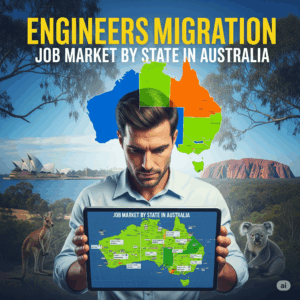Discover essential family budgeting tips for immigrants to manage finances and the cost of living abroad effectively after migration.
Introduction
Relocating abroad poses financial challenges for families adapting to new environments. Managing the cost of living abroad for families requires careful budgeting to avoid surprises. This article addresses common financial hurdles skilled migrants face and offers practical family budgeting tips for immigrants to build a secure financial foundation in their new home.
The Problem Immigrants Face: Financial Stress and Unexpected Expenses
Moving internationally involves more than just visa applications and packing—it demands strategic financial planning. Families often underestimate expenses like international shipping, temporary accommodation, initial household setup, and fluctuating exchange rates. Without a detailed budget, migrants may struggle with:
- Hidden costs such as customs fees, health insurance, and school-related expenses.
- Irregular income flow during job search periods.
- Managing multiple currencies and transfer fees.
- Adjusting to higher or different costs of utilities, groceries, and transport.
- Overwhelming debt caused by exceeding their available funds.
Unprepared budgeting can cause stress that impacts family wellbeing and hinders smooth settlement.
The Solution: Family Budgeting Tips for Immigrants
- Create a Detailed Moving and Post-Arrival Budget
Start by listing all anticipated expenses, including:
- Pre-move costs: visa fees, flights, insurance, pet-related expenses.
- Moving costs: international shipping, customs charges, packing materials.
- Initial living costs: rent deposits, temporary accommodation, utilities setup.
- Ongoing monthly expenses: groceries, transport, schooling, healthcare.
Allocate realistic amounts for each category by researching local prices online and through expat forums. Use spreadsheets or budgeting apps to track progress and adjust plans.
- Prioritize Essential Spending
Focus on essential needs first:
- Secure affordable housing within your means before considering upgrades.
- Budget childcare and school-related costs early if relocating with children.
- Prioritize health insurance coverage and emergency savings.
- Delay non-essential purchases—buy second-hand furniture or household items to save.
This approach ensures that basic requirements are met without overspending.
- Optimize Currency Exchange and Banking
Be mindful of currency fluctuations and banking charges:
- Open local bank accounts quickly to avoid costly foreign transaction fees.
- Use reputable money transfer services with favorable exchange rates.
- Consider multi-currency accounts to manage funds before and after migration.
- Monitor exchange rates and convert funds strategically to maximize value.
- Research and Utilize Local Financial Support and Discounts
Many cities offer newcomer programs, discounts, or subsidies:
- Look for government or NGO programs supporting immigrant families with childcare, transport passes, or health services.
- Use educational subsidies or free language courses that reduce expenses.
- Join local expat or community groups to learn about cost-saving tips and resources.
Leveraging these supports reduces financial pressure during settlement.
- Plan for Contingencies and Build an Emergency Fund
Set aside funds equivalent to 3–6 months of essential expenses:
- Emergency savings protect against unexpected job loss or medical needs.
- Avoid overextending credit that can lead to debt accumulation.
- Regularly review and adjust your budget to reflect changes in income or expenses.
- Maintain Open Communication and Involve the Whole Family
Financial transparency helps avoid misunderstandings:
- Discuss budgeting goals and spending limits openly.
- Encourage older children to understand money management and saving habits.
- Plan family activities within a set entertainment budget to maintain social wellbeing without overspending.
Action Steps to Get Started
- Begin budgeting at least 6 months before moving.
- Collect detailed quotes for all major expenses.
- Create a simple but thorough budget spreadsheet or app.
- Consult with experienced immigration advisors or migrant support organizations for local cost insights.
- Reassess your budget every 3 months during your first year abroad to stay on track.
Conclusion
Managing finances as a migrant family requires foresight, flexibility, and disciplined budgeting. By anticipating costs, prioritizing essentials, optimizing currency management, and accessing local supports, immigrant families can stabilize their finances and focus on successful settlement. Early and ongoing budgeting is the foundation for long-term financial security and a smoother transition abroad.


